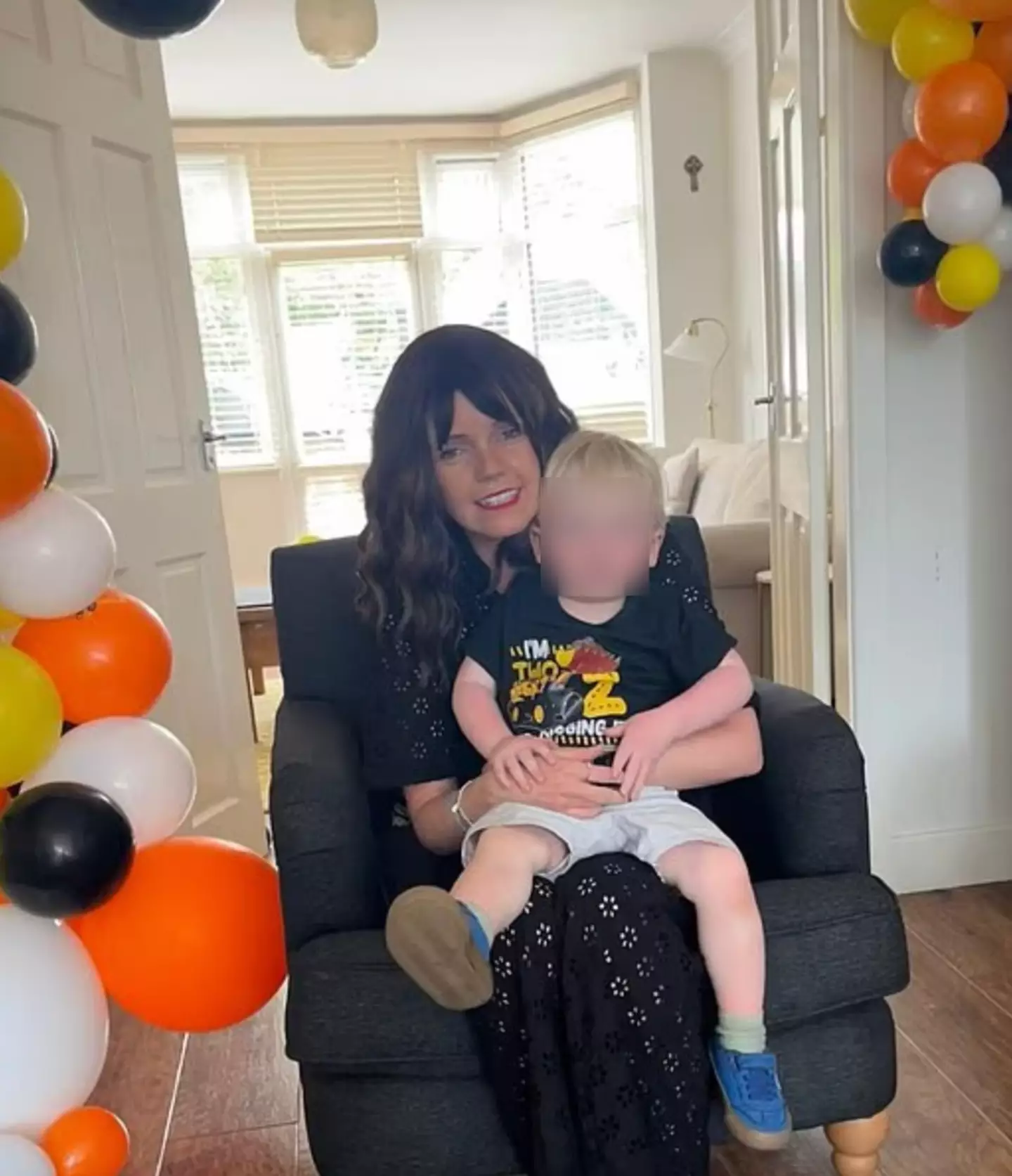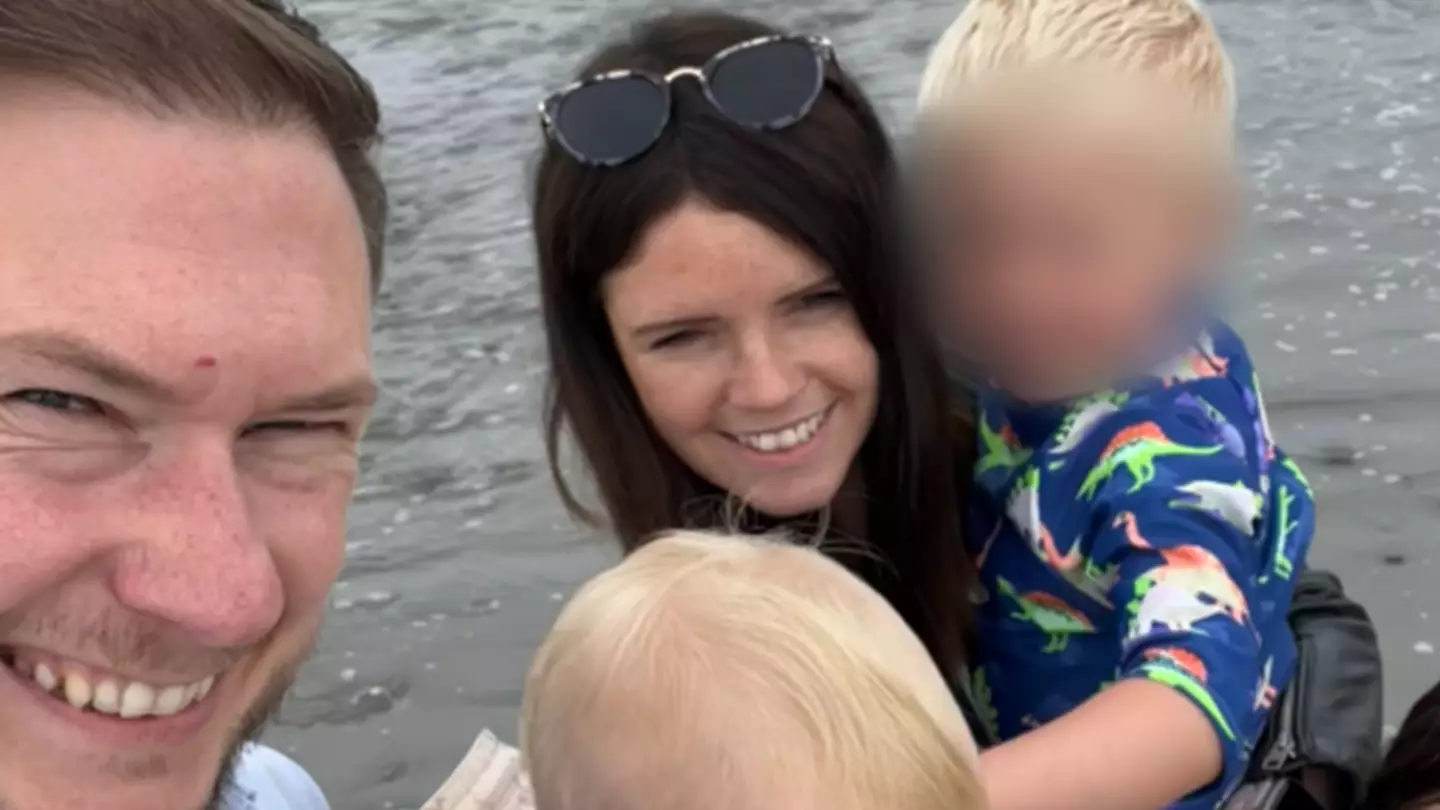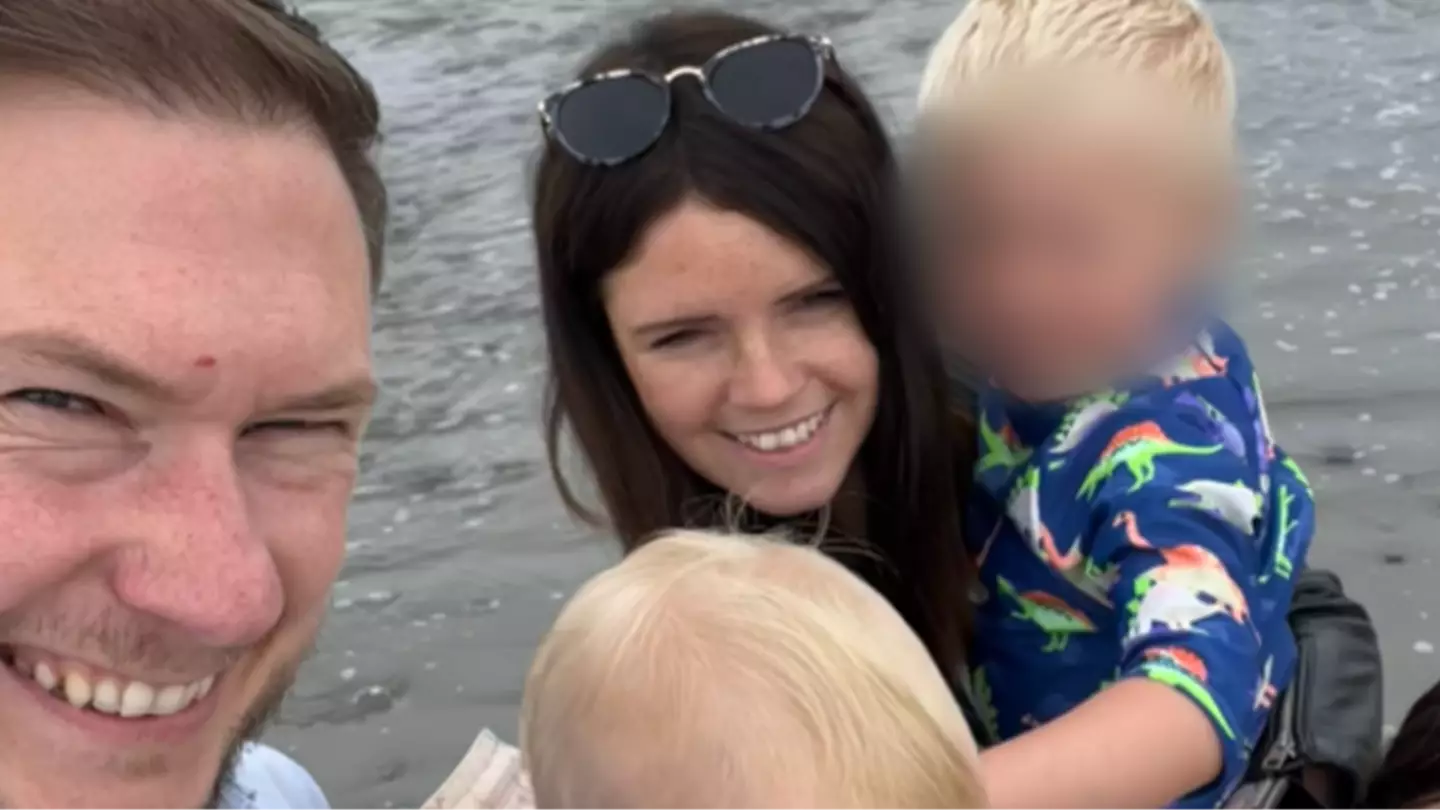Warning: This article contains discussion of cancer which some readers may find distressing.
A woman was given a prognosis of only two years to live after her medical symptoms were initially mistaken for indigestion.
Maeve Fanning, aged 38 and hailing from Birmingham, was diagnosed with a rare cancer known as thymoma earlier this year.
Thymoma occurs in a gland called the thymus, positioned behind the breastbone.
Last fall, Maeve began noticing symptoms, such as difficulty eating due to a ‘heaviness’ in her stomach accompanied by indigestion.
Despite being prescribed medication, her symptoms persisted and were soon joined by a persistent cough.
Shortly before Christmas, Maeve began experiencing breathlessness, prompting her to visit her GP. This led to scans being arranged to investigate whether there was a more serious underlying issue.
The scans detected excess fluid in her lungs, raising concerns among doctors about the possibility of blood cancer.

A few days later, Maeve was informed that her actual condition was thymoma.
“When they detected fluid in my lungs and said they’d need to start treatment immediately my heart sunk,” Maeve shared with the Daily Mail.
“Two of my children have birthdays in January, so after my biopsy, I ran around trying to get the last bits together – balloons and presents – the call came two days later.
“On January 4 I was told I likely had blood cancer and that they had a bed for me.
“It was heartbreaking having to explain to my children that I wasn’t going to be there for them. They watched from the window as I left, crying their eyes out.
“When I asked what my prognosis was, I was told I would just have to be patient and wait for the results. It was horrendous.”
Following further diagnosis, Maeve learned she had stage four thymoma, as the disease had spread to the lining of her lungs.

Maeve, who is a mother to Oonagh, nine, Cormac, five, and Ciaran, two, has been offered palliative chemotherapy, expected to extend her life for a maximum of two years.
She has supplemented her chemotherapy with various treatments including hyperthermia, hyperbaric oxygen therapy, curcumin infusions, and light therapy.
Maeve detailed her journey on a GoFundMe page, set up to assist with the financial burden of her treatment: “I am currently travelling down to London twice a week for private treatment which is designed to complement the chemotherapy I am receiving. Treatment includes hyperthermia, hyperbaric oxygen therapy, curcumin infusions and light therapy. These are evidence backed treatments but unfortunately the cost is pretty astronomical.
“However, I have read so many positive stories and outcomes of people receiving these treatments that I feel it is critical I continue but need some help funding it.
“I am trying absolutely everything to ensure I am alive and healthy to see my beautiful children grow up. When I was diagnosed, my youngest was just 18 months old and at the time I wasn’t sure if Christmas 2024 would be my last with them. It’s a horrendous situation, every mother’s worst nightmare and this is why I need to do everything I can to ensure I am still here for them.”

A friend commented on the page: “There are not really the words to describe how huge this blow has been for Maeve and the impact that this has had on her and her beautiful family.
“She is an amazing mother to her three children Oonagh (9), Cormac (5) and Ciaran (2) and a wonderful wife to her husband, Paddy. Everyone who knows them adores them and they are so kind and generous.
“But now, they need our support – as we all know the NHS only offers so much and with a Stage 4 diagnosis, the options for treatment are limited. However, Maeve has so much tenacity and resilience and has worked tirelessly to seek out possible treatments that can alter her prognosis and hopefully beat cancer for good.”
Maeve is scheduled to begin proton beam therapy at University College London Hospital later this month.
In addition to her treatment, Maeve aims to raise awareness about the potential link between thymoma and an autoimmune condition called lichen planus, which she was diagnosed with a year prior.
Researchers suggest there might be a connection between the autoimmune disease and thymoma, with symptoms including clusters of shiny, raised, purple-red blotches on the body; white patches on gums, tongue, or inside the cheeks; burning and stinging sensations in the mouth; bald patches; sore red areas on the vulva; rough, thinning nails, and ring-shaped purple or white patches on the penis.
The NHS notes that affected individuals may experience just one of these symptoms.
You can visit Maeve’s GoFundMe here.
If you’ve been impacted by similar issues and wish to speak to someone confidentially, reach out to the American Cancer Society at 1-800-227-2345 or through their live chat feature, available around the clock every day of the year.

